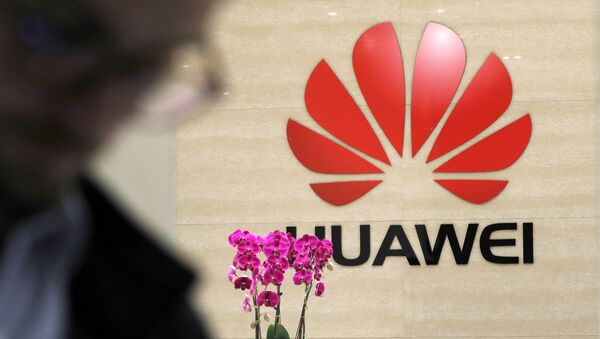In mid-May the Trump administration added Huawei and 70 of its affiliates to its so-called ‘entity list’, meaning that US companies are prohibited from supplying hardware and software to firms on this blacklist without a special license from the US government. According to President Donald Trump, the Chinese tech giant poses a threat to US national security.
Heng Wang, Associate Professor & Co-Director at the Herbert Smith Freehills China International Business and Economic Law (CIBEL) Centre at the Faculty of Law of the University of New South Wales says that the fact that many US companies have applied to sell products to Huawei shows how much supply chains are integrated:
“It reflects the practice of global value chains. Huawei imports a lot from American suppliers, while American businesses also want to export their products to Huawei,” Wang explained.
Huawei figures show that the tech giant bought over US$11 billion from American suppliers in 2018, out of US$70 billion that it spent buying components.
Dr. Stephen Nagy, a senior associate professor of international relations at Tokyo's International Christian University echoed these views, naming two factors which drive American companies to want to do business with Huawei:
“First and foremost, it’s the dependency on Huawei and its product for American businesses. American businesses have yet to find an alternative to Huawei and as a result, they need to maintain strong business ties. Second, and I think equally as important, is that the president’s wavering on trade negotiations with China and shifting stance with regards to whether it will sanction Huawei and other technology companies from China has left the window open for American firms to continue to try to maintain those strong ties until an alternative supplier is found.”
As to whether this will somehow affect the US rhetoric towards Huawei, Dr. Nagy pointed out that this is part of Trump’s on and off strategy in terms of putting Huawei on the table in terms of negotiations and linking it to the US-China trade deal:
“I think the negotiating tactic of President Trump has been one of bluster and bullying followed by a kind of engagement, so constantly changing the bar to unbalance the Chinese in this negotiation process. So he warms them up and then cools them down and this is a strategy to push the negotiation in the direction that I think Mr. Trump is trying to achieve,” Nagy said.
Wang added that the fact that the US Commerce Department hasn’t approved any applications after Donald Trump discussed the matter with Chinese President Xi Jinping at the last G20 summit in June can be partially attributable to the deadlock in the US-China trade negotiations. “The Trump Administration is also trying to identify its national interests, which involve the commercial interests of US businesses.”
The US administration has also been trying to pressure allies to freeze out the Chinese firm's technology from being used in 5G networks, claiming that it posed a risk to national security, which Huawei has strongly denied.
Trump has introduced initiatives to speed up the rollout of new 5G networks in America and wants the US to create an alternative 5G high-speed communication network, but experts remain divided on this issue. Some believe this will not be possible without Huawei equipment, while others say the US can cooperate with its allies on 5G, but China will be the leader in this field.
“The United States is home to Internet giants, whether it’s Google or Facebook, and they’re already contributing to the development of the 5G network,” Dr. Nagy said. “The difference is that the Chinese are ahead and Huawei are ahead because of the massive amount of data that they enjoy access to. In many ways Chinese society is much more advanced in terms of its digital economy and the number of digital interactions that ordinary Chinese citizens engage with every day. And through that digital engagement, businesses can acquire data and data really is the new gold, it’s the new oil. If Saudi Arabia is the king of oil, well, China is the king of data. And I think they have much more access to huge amounts of data, which has allowed them to develop the 5G systems faster,” the scholar concluded.
Earlier this month, Huawei also launched its own mobile operating system - Harmony OS. The new system is the Chinese tech giant's alternative to Google's Android. Huawei has been uncertain whether it would be able to use Android for its future mobile devices and this prompted it to release its own software.
The views and opinions expressed by the contributors do not necessarily reflect those of Sputnik.



